Prince Hall Masonic Lodges NEVER RECEIVED A CHARTER
What if Prince Hall Masonic Lodges [NEVER RECEIVED A CHARTER]? Another "what if" episode of the Old Fashion Masonic Podcast.
Uncharted Paths: A World Without Prince Hall Masonic Lodges
We’ve all heard of Prince Hall Lodge. This great group of men have raised some historical figures in U.S. History. Imagine this, what would the world be like if they were never granted a charter? This video will speculate exactly that.
Uncharted Paths: A World Without Prince Hall Masonic Lodges
The decision made by the Grand Lodge of England in the mid 18th century, to withhold a charter from the African Masonic Lodges, known as Prince Hall Masonic Lodges, was one such moment. In this alternative reality, we explore a world where this charter was never granted, and how it would have impacted African-American Freemasons, including prominent figures like Jesse Jackson and Thurgood Marshall.
Chapter 1: The Lost Brotherhood
In this alternate timeline, African-American men found themselves locked out of the Freemasonry brotherhood.
As a result, the sense of unity and mutual empowerment within the African-American community was significantly weakened. They were never granted a charter. The Grand Lodge of England insists it was granted, but never received.
Chapter 2: The Impact on Prominent Figures
One cannot discuss the consequences of this altered history without considering the impact on individuals who had once been Freemasons in the original timeline. Jesse Jackson and Thurgood Marshall were never involved in Freemasonry. Because of this, the following laws were never enacted:
Smith versus Allwright (1944), which found that states could not exclude Black voters from primaries was never put into effect.
Shelley versus Kraemer (1948), which struck down race-based restrictive housing covenants was never enacted. African-Americans could never live integrated with whites.
Sweatt versus Painter (1950), which deemed separate facilities for Black professional and graduate students unconstitutional
Chapter 3: The Lost Legacy
In this world where Prince Hall Masonic Lodges never received their charter, the impact was not only felt in the realm of civil rights and politics but also in the cultural and social fabric of African-American communities.
Segregation remained in effect.
The community lacked a cohesive organization that could bring individuals together for the greater good. Social initiatives, charity work, and educational programs that had been sponsored by these lodges vanished, leaving a gap in the progress of African-American society.
Chapter 4: A Slow March Towards Progress
As the years passed, African-American men found alternative routes to self-improvement and community service. African-American college fraternities were never allowed. Other fraternal organizations and community groups emerged to fill the void left by the absence of Prince Hall Masonic Lodges, but these lacked the historical significance and centuries-old wisdom of Freemasonry.
The struggle for civil rights still took place, albeit with different leaders and organizations at the forefront.
Chapter 5: The Unveiling of Hidden Truths
In this alternate timeline, a curious historian stumbled upon a hidden archive in a dusty corner of the Library of Congress. Among the forgotten records, he discovered letters and documents that revealed the true reason behind the denial of the charter to the African Masonic Lodges.
The Grand Lodge of England had indeed intended to grant the charter, but a series of events at the Boston Tea Party prevented them from ever receiving their charter. The Charter was hidden.
It was not until 1975, that the Charter was discovered and put into effect.
The revelation sent shockwaves through the Masonic world, leading to a newfound effort to rectify the historical injustice.
Chapter 6: Rebuilding the Brotherhood
With the official recognition of Prince Hall Masonic Lodges, a sense of unity and purpose was restored within the African-American Masonic community. African-American men could join the ranks of Freemasonry, accessing the same teachings and opportunities as their brethren worldwide.
Chapter 7: A Reimagined Legacy
In this altered timeline, countless other African-American Freemasons, had the opportunity to engage with Freemasonry from a young age.
They absorbed its teachings, principles, and values, which shaped their worldview and leadership styles.
Chapter 8: The World Today
As we fast-forward to the present day in this alternate reality, we find a world where the legacy of Prince Hall Masonic Lodges is celebrated alongside the wider Masonic tradition.
The struggle for civil rights, although still arduous, was navigated with greater unity and solidarity.
The story of this alternate reality serves as a reminder that even in the absence of certain opportunities, the human spirit will always find a way to strive for greatness and justice.
-
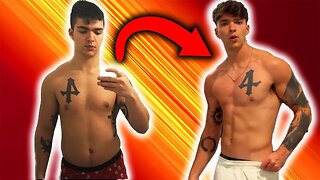 4:43
4:43
ParisDemers
1 day agoThis Diet Hack Changed My Life! (How To Get Ripped FAST!)
60.3K28 -
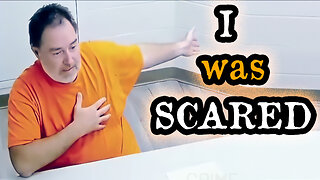 46:57
46:57
Crime Circus
1 day agoApple River ST*BBING!! Stand Your Ground Interrogation of Man in Wisconsin
71.1K45 -
 9:39
9:39
Tactical Advisor
1 day agoHow To Improve Your Shooting For FREE! Mantis Blackbeard X
86.6K15 -
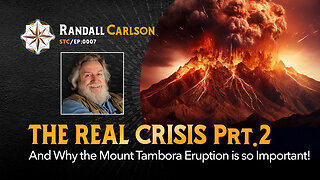 1:00:59
1:00:59
Squaring The Circle w/ Randall Carlson
1 day ago#007 The Real Climate Crisis Noone Is Talking About and Mount Tambora Pt 2
91K27 -
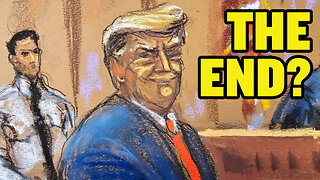 13:52
13:52
America Uncovered
1 day agoEveryone is WRONG About Trump's Guilty Verdict
70.1K136 -
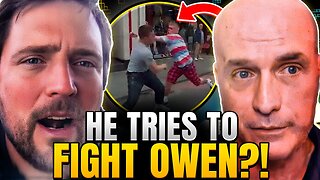 13:10
13:10
Censored TV
1 day agoThe Owen Benjamin vs Jim Goad debate was WILD
71.3K52 -
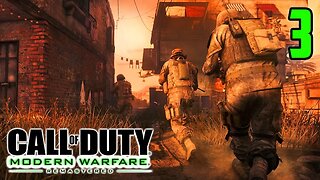 25:27
25:27
Degenerate Plays
22 hours agoThe Microtransaction Master - Call Of Duty Modern Warfare Remastered : Part 3
66.6K5 -
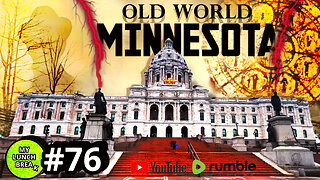 21:03
21:03
MYLUNCHBREAK CHANNEL PAGE
1 day agoOld World Minnesota?
69.6K38 -
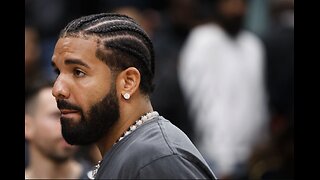 5:49:05
5:49:05
Akademiks
1 day agoDrake Next Move - Whats next?? Did Lil Baby Listen to Me? Diddy and Family Preparing for Indictment?
127K59 -
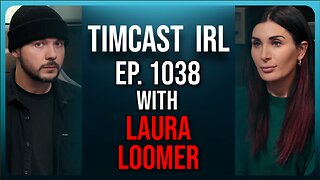 1:56:06
1:56:06
TimcastIRL
1 day agoTrump Raises RECORD $52.8 MILLION In One Day, Bonus Uncensored Show w/Laura Loomer | Timcast IRL
143K532